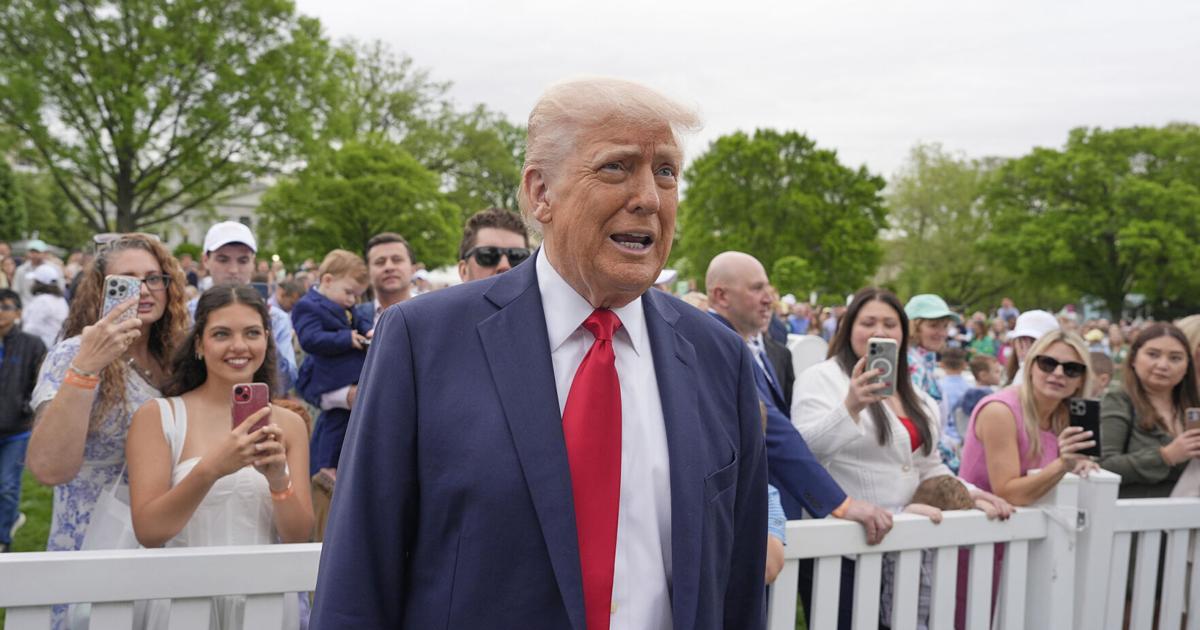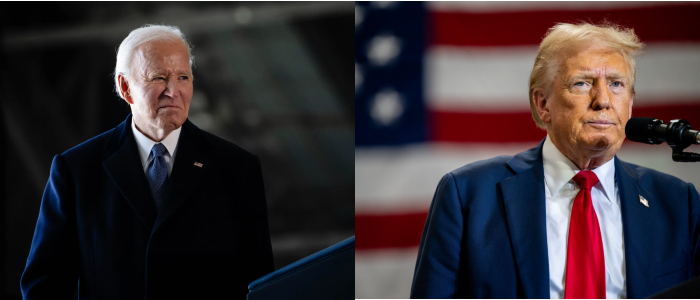One economic policy mistake invariably leads to another to compensate for the damage from the first. The latest example are reports that the Trump administration may create a tax break for U.S.
exporters harmed by foreign retaliation to the president’s tariffs. Don’t be surprised if the cost of paying off the many U.S.

tariff victims ends up exceeding the revenue they raise. While some countries are trying to negotiate Trump’s tariffs down, others are punching back. Beijing is imposing 125% duties on all U.
S. goods to match Trump’s latest tariffs, which will effectively cut off American exports to China. Ford Motor Co.
has stopped shipping to China pickups, SUVs and sports cars made in Michigan. Beijing has also told Chinese airlines to halt purchases of Boeing airplanes and aircraft parts from U.S.
companies. The European Union has threatened 25% duties on an array of U.S.
goods in response to Trump’s 25% steel and aluminum tariffs. Canada has slapped 25% tariffs on more than $40 billion in U.S.
exports. People are also reading..
. Senator meets with Abrego Garcia in El Salvador amid court fight over his return to US Samantha Ricketts reflects on Patty Gasso's impact amid OU-Mississippi State softball series Letter: Dear Sen. James Lankford, I am concerned and would like a response Update: Mother and child found dead after family's SUV swept away by floodwaters OU softball falls in Top 25 after series loss at Alabama, looks to regroup vs.
Mississippi State Adair man, 36, dies after head-on crash Tuesday in Mayes County State reps match Bible verses in 'Christ is King' resolution debate Man who survived Nazi occupation tells anti-MAGA activists in Tulsa: 'Resist!' Update: 7-year-old boy killed when hit by car on 21st Street near Memorial Drive David Stone's departure could have continued OU football's run of 5-star misfortune Ben Arbuckle re-creates Lincoln Riley's Easter brisket, showing OU fans his sense of humor Daigoro to open on Riverside Drive featuring upscale Asian fusion cuisine | Restaurant News 2 dead in flooding in Moore; rain moves out of Tulsa, for now Report: OU defensive tackle David Stone, former 5-star recruit, has entered transfer portal Mason's Monday Mailbag: Is kicker OU football's top remaining need in the transfer portal? If the trade war escalates, Trump’s tariffs could reduce U.S. exports as much as they do imports.
The first-term Trump administration spent some $23 billion to aid farmers harmed by China’s retaliatory tariffs, which the Trump team plans to do again. Now news reports say some Trump officials are also considering a new exporter tax credit to support manufacturers. The idea is to compensate U.
S. companies for declines in exports caused by retaliatory tariffs. So if steelmaker Nucor ’s exports shrink by $3 billion as a result of other countries’ tariffs on U.
S. steel, the company could receive a tax credit — effectively a government payment via the tax code — to offset reduced sales. Unlike most business credits — such as for research and development , chip-making or green energy projects — this tax subsidy wouldn’t be designed to reward politically favored investments and indus t ries.
T he point would be to mitigate damage caused by a misconceived U.S. government policy.
Another recent example is the COVID-19 employee retention tax credit, which was paid to employers to keep workers on their payroll after the government shut down the economy. That credit was rife with fraud as businesses unaffected by lockdowns claimed it. Consider it a safe bet that companies that lose exports for reasons other than trade retaliation will claim the export credit.
The bigger problem is that the credit runs counter to the goals of Trump’s 2017 tax reform, which simplified the corporate code by eliminating sundry tax breaks. As JPMorgan Chase CEO Jamie Dimon noted in his recent annual letter, the cut in the corporate tax rate to 21% from 35% was paid for in large part by this simplification and broadening of the tax base. Adding new tax dispensations will muck up the code and reduce corporate tax revenue.
It will put fiscal pressure on Republicans to raise the corporate tax rate, which would make U.S. businesses overall less globally competitive.
Republicans are already considering raising the corporate rate and top marginal individual rate to pay for Trump’s tax breaks that do nothing for economic growth like his deduction for interest on car loans. Tariffs are economically harmful for their immediate victims, but they are also politically corrupting as lobbyists plead for exemptions and subsidies. An export subsidy won’t be the last mistake to make up for the original sin of tariffs.
.
Politics

How Trump's tariffs hurt tax reform | The Wall Street Journal

White House advisers float an export credit to make up for the harm of trade barriers















